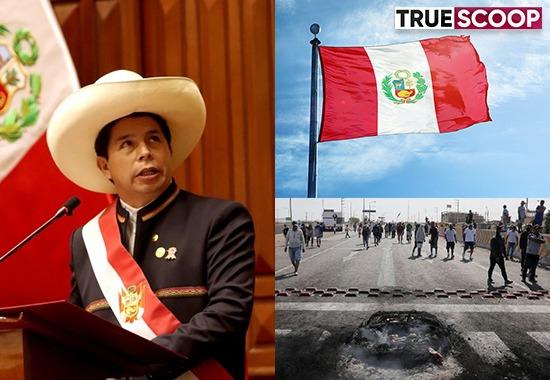After Sri Lanka, now Peru is also facing an outcry due to an inflationary economic crisis. People are protesting.
There were reports of arson and vandalism in many cities. After this, the President has declared a state of emergency in the capital of Lima and Calao.
Peru's President Pedro Castillo also announced a curfew after a meeting with the Council of Ministers. At the same time, some basic rights have also been cancelled for the time being.
Now people will not be able to gather in one place nor will they be able to take out a rally. About one crore people in the country will be affected by this.
Like many countries, Peru was already struggling with inflation. But the situation worsened after the Russia-Ukraine war. In March, inflation was the highest in 26 years.
Russia is facing many sanctions due to the Russian attack on Ukraine. Russia is a major exporter of potash, ammonia, urea and other soil nutrients.
Also Read: Sri Lankan Crisis: A Management Disaster
Energy, food and fertilizer prices have soared around the world following sanctions on Russia. Their prices are skyrocketing in Peru too. The government seems unable to bring down the prices.
Given the anger of the people, the government is trying to reduce the prices. The government had recently said that the tax would be removed to reduce fuel prices.
Along with this, the minimum wage will be increased by about 10 per cent to 1,205 soldiers i.e. $ 332 (about Rs 24,990) per month.
But the country's main trade union, the General Confederation of Peruvian Workers, dismissed the wage increase as inadequate. Here the price of diesel was supposed to be reduced to $0.47 per gallon (1 gallon = 1.5 litres), but this did not happen.
last week as farmers and truck drivers blocked Lima's main highways. Due to this, there was a sudden jump in food prices.
Not only this, but near the southern city of Ica, the protesters torched toll booths and clashed with the police. There are also reports of violent demonstrations in many other cities. According to reports, 4 people have died in these incidents.
In last year's election, farmer and school teacher Pedro won the election with overwhelming support from the rural poor.
Peru is already facing the brunt of inflation. The government is not able to fulfil its promises. As a result, people are protesting. At the same time, the popularity of the President is also decreasing.
The Left leaders came to power last year with a thumping majority. But he had overwhelming support from the rural poor.
In such a situation, the protests have now become a problem for President Castillo. According to opinion polls, his approval rating has come down by 25 per cent. He has been impeached twice during his eight-month tenure.
